Nations and Realms on Aurea
AescalapeaOriginal article: Aescalapea
Once part of the Great Empire, Aescalapea has long been known as the province of merchants and sea traders. Its ruling class was devastated during the rule of the last Emperor, Lucius "the Heretic" and much of the nation rose in revolt even before the Emperor's death. The subsequent ravages of the Crimson Plague hit Aescalapeans harder than most other regions of the Great Empire, killing more than half its population as the Third Age of Man waned. At the dawn of the Fourth Age of Man, Aescalapea has reorganized itself as a collection of city-states ruled by the powerful Syndics. While they have a Senate that meets irregularly to adjudicate matters for the region, the Senate is relatively powerless and most Aescalapeans very much prefer to keep it that way. |
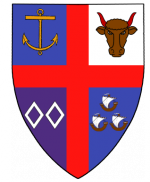 |
AncleaOriginal article: Anclea
Once a remote, pastoral nation, Anclea has risen in the Fourth Age to become a fiercely independent nation, resisting attempts by neighboring Murgosia to conquer it. Because of its remoteness and an alliance with the elves of the Glistening Weald, Anclea was not as devastated by the Dark Times and is quickly becoming an economic powerhouse in central Aurea. Anclea has long been known to have a large population of half-elves and more than a few have risen to positions of prominence in the recently-founded Republic. |
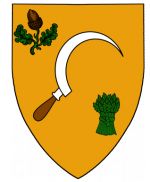 |
AquiliaOriginal article: Aquilia
Once part of the Great Empire, Aquilia was founded by a group of rebellious legionaries who carved out a nation on the border of Medalia and Camaria at the dawn of the Fourth Age. Highly militaristic, the nation is divided along religious lines, with the worshipers of Vortumnus, the god of honor, competing with worshipers of Kratos, god of war, for the hearts and minds of its citizens and soldiers. Aquilian mercenary companies are renown throughout southern Aurea for their discipline and loyalty to their contract, regardless of their religious inclinations. |
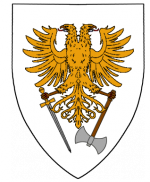 |
CamariaOriginal article: Camaria
Despite a long history as a peaceful agricultural nation, Camaria was one of the last subject territories to become independent from the Great Empire, after a bloody internal civil war that resulted in the destruction of much of its nobility. Camaria has since become a chaotic nation, known for its corrupt nobility more interested in personal gain than ruling effectively. Many of the coastal merchants have recently turned to piracy to supplement their incomes, paying off local nobility to provide them safe haven when not at sea. It is rumored that worship of Taltos, the Deepdweller, is on the rise in the region and the Church of Betshaba has been debating a Crusade to cleanse the coast of his adherents. |
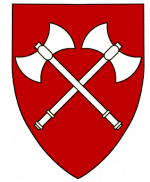 |
CampoisOriginal article: Campois
Once a border region of Narbonne, Campois subject to numerous Valtang raids until one Valtang adventurer, Haralt Gunduin came to the Narbonais crown and offered to defend the territory in return for the title of Duke. Gunduin was granted the title and successfully staved off the attacks of his brethren, but his son, Grand Duke Tancred Gunduin, broke from the Narbonais crown and founded Campois as an independent Duchy. Though relations with her parent nation remain strained at best, Campois' rich iron mines and legendary axemen have made the nation wealthy and secure. Unlike other regions conquered by the Valtang, Campois has retained its culture and today, her nobility speak Narbonais better than they speak Valtaani, if they speak the latter language at all. |
|
CordosiaOriginal article: Cordosia
Formerly a client-state of the Great Empire (and one of the few allowed to retain its own monarchy), Cordosia suffered deeply during the reign of Lucius the Heretic in the waning years of the Third Age of Man. As Cordosia climbed out of the turmoil of the Dark Times, the clergy of Meliboea, the Farseer, gained in prominence as monarchy was re-established in the region. Cordosia has become prosperous, with a growing navy and powerful merchant fleet, despite an often cut-throat political culture as various newly-established noble families vie for prominence. Despite promises by the Mages Guilds and priesthood of Abaris, practicing Hermetic Magic in the region has been prohibited and there are periodic pogroms, usually lead by the priestesses of Meliboea, to find and burn at the stake wizards who use their arts in the Kingdom. |
|
DalleaOriginal article: Dallea
A remote land mostly ignored in the past, Dallea has recently come under the rule of an ancient being known only as the Dread King. Rumors persist that this Dread King is building an army of goblins, giants and their ilk to take over neighboring states on the island of Dresta. Most are willing to ignore these rumors, given the remoteness of the region, but those few who have tried to go to Dallea to investigate have failed to return. |
|
Donnagh SaoristatOriginal article: Donnagh Saoristat
Formerly called the Mabean Marches under Imperial rule, this kingdom is populated by people of Gael stock who rebelled against the Empire early in the Fourth Succession War under the leadership of a native centurion and with the support of the Kingdom of Breche. Though it still retains its nobility, Donnagh became a Soaristat (or Freestate) during the Dark Times under the guidance of its native druids and its rulership, including its High King, are elected to their positions for life (though they can be impeached should their people decide they are unfit to rule). Donnaugh Soaristat is currently embroiled in a bloody war with neighboring Haethgrind that attracts no small number of young, idealistic warriors from across Aurea who see Donnagh as the front line of defense against the Valtang invasion of the continent. |
|
DraciaOriginal article: Dracia
Once known as the "Errant Son" of the Great Empire because of the wily and deceptive nature of its people, Dracia was one of the first regions of the Great Empire to gain its independence from the Empire during the Fourth Succession War. With the dawn of the Fourth Age of Man, Dracia was positioned to become one of the few organized powers of the region, but for the last decade they have suffered under the iron grip of their Ivory Queen, a sorceress who worships the last Emperor, Lucius "the Heretic", as a god and she as his successor to the glory of the Great Empire. |
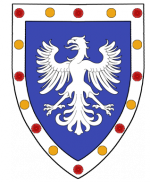 |
DralliaOriginal article: Drallia
A somewhat lawless region even in the height of the Great Empire, Drallia is now a chaotic frontier ruled over by a myriad of robber barons. The bandit chiefs are more than willing to fight with one another, but the land itself is relatively poor in resources and there's often little to fight over. The few port towns that once dotted the eastern shore have mostly fallen to ruin and become little more than fishing villages. |
|
DreluriaOriginal article: Dreluria
A former part of Anclea, the Maakond of Dreluria rebelled during the foundation of the Anclean Republic and rallied around their half-elven Krahv, Rukkilill Maadu. When Rukkilill was killed without heir in an orcish raid five years ago, his elven mother, Laukapuu became Krahvinna. Laukapuu is believed to be the only elven ruler of a predominantly human state. Ironically, the Drelurian people have rallied around their beloved Krahvinna, while the nearby elves of the Glistening Weald seem to ignore the elven ruler and her court. Dreluria is in constant conflict with the orcs across the Sighalaht Bay and their northern shore, called the Rampart, is lined with numerous fortifications and castles. |
|
DrussaOriginal article: Drussa
A former client province of the Great Empire, Drussa is the last bastion of House Servilis, one of the Great Houses of the Empire. Though House Servilis has long surrendered any pretense to reconstructing the Empire, Drussans have a reputation as an industrious and hard-working, if somewhat dim, people. Drussa has numerous swamps and bogs along the Temesh River and the river-folk who live in these wetlands tend to be independent and suspicious of outsiders unless, of course, these strangers come with full coin purses. |
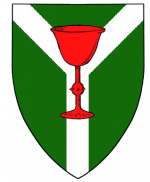 |
GanesiaOriginal article: Ganesia
An ancient people who once served as the breadbasket of the Empire, Ganesia was ravaged in the final stages of the Fourth Succession War. Ganesia is still dotted with decaying fortifications manned by ill-trained soldiers led by various Legates and scions of various Great Houses who raid and pillage farming villages already struggling to scrape sustenance from the dying land. Many have come to believe Ganesia to be cursed and merchant vessels tend to avoid the few port towns that can still accommodate them. |
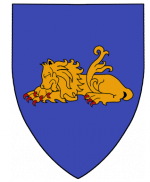 |
GyneiniogOriginal article: Gyneiniog
Called the Forest Kingdom, Gyneiniog is peopled by Gaels who still tend to cling to their Clans, though war with the Valtang has greatly reduced the size of the Kingdom and weakened the familial bonds that once dominated the region. Having fought against first Imperial aggression and then the armies of the Valtang, the people of Gyneiniog tend to be violently suspicious of outsiders, particularly priests of the Old Gods. The ancient and mysterious druids have long been the spiritual leaders in the region and the people are more than willing to string up and execute foreign missionaries they find in the region. |
|
HaethgrindOriginal article: Haethgrind
Once part of Donnagh Saoristat, Haethgrind was invaded and conquered by Valtang raiders during the Dark Times. The Vikingr raiders that conquered the region quickly intermarried with the local population and have adapted to the hilly terrain, expanding the tin and copper mines and opening several new bronzeworks. Rumors persist that Haethish miners have even found significant iron deposits and may have begun production of steel, despite the traditional preference for bronze weaponry and tools by the Valtang. Due to its mineral wealth, Haethgrind has become the major source of weapons and tools among the Valtang kingdoms and no small amount of wealth is pouring into the country. |
|
HinodeOriginal article: Hinode
A remote hinterland at the edge of the known world, very few have even heard of this region, carved out of what was once orcish land. |
|
KadachOriginal article: Kadach
Rumors persist that a number of minotaur slaves of the orcs have successfully risen up against their former masters and founded their own nation at the edge of the world. Few human scholars believe this is even possible, though there are rumors of great minotaur sailing vessels that have recently reached Ywys to establish trade with human lands. |
|
KaronyOriginal article: Karony
Formerly at part of Camaria during the height of the Great Empire, the Duchy of Karony successfully split off early in the civil wars of its parent nation and has since become a prosperous shipping country. Its large navy is in constant conflict with Camarian pirates and tends to trade more northward with more peaceful coastal nations. |
|
LjoetrlundOriginal article: Ljoetrlund
The first of the lands in northern Aurea conquered by the Valtang, Ljoetrlund was founded during the waning years of the Third Age of Man. Despite coming from similar stock, the Ljoetrsynir have become necessarily agrarian in the last century, though they still remain fiercely independent. Ironically, Valtang raiders have recently begun attacking Ljoetrsynir towns along the shores of the Valtaani Sea, pitting the descendants of Vikingr raiders against those still plying the frozen waters of the north for plunder. |
|
LothavenOriginal article: Lothaven
Wild even to fellow Gaels, the Loth are an extremely tribal people just as willing to fight among themselves as they are against outsiders. Though the region periodically has a High King that brings the Clans more or less under a single banner, there has been no clear High King in the region in over a century. Loths have a reputation for fighting hard, drinking hard and living hard, reflective of the unforgiving cold and rocky hills and mountains they call home. |
|
MabagneOriginal article: Mabagne
Once the Imperial frontier, Mabagne was the Imperial remnant of the Mabean Marches that remained loyal to the Purple after the successful rebellion of the native Gaels and the foundation of Donnagh Soaristat. Today, the nation is a cultural stew of Gael, Imperial and Narbonais people. Despite a traditional distrust of one another, Mabagne and Donnagh are closely allied against the Valtaani and their military plays a major part in bolstering Donnagh troops against the invaders. Unlike in most traditionally Gael lands, druids and priests generally work in concert in Mabagne, with little conflict or competition for worshipers. |
|
MakugaOriginal article: Makuga
The remote western shore of the island of Dresta is rumored to have been the heart of some long-forgotten Empire overrun by goblins and their ilk. Few in civilized lands, if any, have heard of the territory of Makuga, though certainly there is some reason the goblin tribes that once infested the shore are fleeing across the mountains into the service of Dallea. |
|
MedaliaOriginal article: Medalia
Formerly a client province of the Great Empire, Medalia has recently had a resurgence of interest in its pre-Imperial culture. Despite the powerful presence of the remnants of House Valerius, Medalia recently crowned its first hereditary King in centuries. With a strong agricultural base and growing military, both on land and at sea, neighboring countries worry that Medalia is on the rise to become a powerful and potentially aggressive nation in the region, looking to found its own Empire on the ruins of the old. |
|
MendarOriginal article: Mendar
A remote collection of independent port towns on the island of Dresta, Mendar has long been a refuge of pirates and brigands, mostly raiding south along the shores of Gallorea. Rumor suggests that some of the pirate lords have been working together in an uneasy alliance, though few have been able to make the trip to find out just who is behind their organization. |
|
MilosiaOriginal article: Milosia
A rising power in eastern Aurea and rival of Narbonne, Milosia was a client province of the Great Empire. The nation is still nominally under the control of a Proconsul, though the position is appointed by the powerful Legate of the Sixth Legion in the name of the Emperor, despite there having been no clear Emperor for a century. Despite the chaos and dissolution in Aescalapea, the Milosians still bear an ancient hatred towards Aescalapeans, for reasons long since lost to time. |
|
MitariaOriginal article: Mitaria
Once the northernmost outpost of the Great Empire, Mitaria suffered greatly in the waning years of the Third Age of Man as an orcish horde devastated the region. Though the horde was eventually beaten back, there are still a number of remnant orcish tribes terrorizing what few humans remain in the region. More recently, several Clans from the Challieann Mountains have relocated into the region, integrating into the local populace and founding a few strong towns. Surprisingly, most of the Gael clansmen have pledged loyalty to the Mitarian King and several have been raised as nobles. |
|
MurgosiaOriginal article: Murgosia
Though the Murgosh have long enjoyed a reputation as merchants and excellent smiths, the nation is home to the powerful Order of St. Drogomir, the Dun Knights. Dedicated to Galea, the Triumphant, the Dun Knights directly control over half the territory in Murgosia. Though the Knights are respected for their ability to combat the periodic orcish raid, when the orcs are quiet they tend to invade nearby nations looking to spread their influence and control over the region. Currently, Murgosian troops lead by the Dun Knights are invading both Anclea and Rigania and most believe they will eventually conquer both regions. |
|
NarbonneOriginal article: Narbonne
Narbonne was one of the few client states of the Great Empire that retained its monarchy, though that monarchy was historically very weak and controlled by the nation's nobility. During the Dark Times, the Dacourt Dynasty was founded when one of those powerful noble families converted to the Koramian Heresy and took the crown in a brief and almost bloodless civil war. The most recent scion of that dynasty, King Phillipe II Dacourt, is a young, vibrant and generally admired King who easily commands the loyalty of his subjects. Narbonne is again on the rise in Aurea, the flower of chivalry and one of the most influential cultures on the continent. |
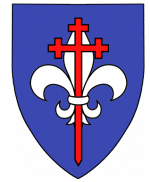 |
NuithoneOriginal article: Nuithone
One of the six Dwarven Kingdoms, Nuithone lies beneath Valtaan on off the northeastern shore of Aurea. Long unknown to most of the world, it has recently been revealed that Nuithone stretches well beneath mainland Aurea. Twenty years ago, Nuithon dwarves emerged from the western edge of the Challieann Mountains, founding the colony of Schweinholz to serve as a buffer on the surface against the orcs of western Aurea. |
|
Orcish MoorlandsOriginal article: Orcish Moorlands
Dry, hilly lands in western Aurea, the Orcish Moorlands are the human name for territory along the Brothers controlled by orcish tribes. The heart of the orcish horde that ravaged much of northern Aurea in the waning years of the Third Age of Man, the Orcish Moorlands are currently experiencing an invasion of their own as nearby human and dwarven nations push into the area, establishing military colonies to ensure the orcs do not again organize into an unstoppable horde. Some scholars have pointed out that this sort of military aggression might just be the catalyst that encourages the fractious orcs to work together, perhaps generating a new Great Khan to unify the clans against the civilized nations of Aurea. |
|
PavardyOriginal article: Pavardy
Information has not yet been determined. |
|
RathurthjothOriginal article: Rathurthjoth
Frozen Rathurthjoth was formerly part of the Gael Kingdom of Gyneiniog before it was conquered by Valtaani raiders during the Dark Times. Though the Valtaani conquest was never bloodless, the war between the Valtaani and the native Gaels was particularly bloody on the cold plains of Rathurthjoth. The Rathsynir still have a reputation for being bloodthirsty in battle, not accepting surrender nor defeat. Recently, however, their war against the Gaels of Gyneiniog has ground to a stand-still because of their refusal to incorporate the native, agrarian populace and their neighboring Valtaani states seem less and less willing to supply the Rathsynir with the materiel they need to continue their war.
|
|
Ride of TongwrOriginal article: Ride of Tongwr
The Ride of Tongwr has been dominated by nomadic Orcish horsemen for as long as anyone can remember, though there are some scholars who suggest an ancient empire was once centered in the region, its ruins avoided by even the bravest of orcs as haunted by malignant ghosts best left alone. |
|
ScalaroOriginal article: Scalaro
Once a hinterland of the Great Empire, Scalaro has in recent years become a bustling merchant nation at the center of trade in the Sonat and Tanos Bays. There is no small amount of political conflict between the quickly-rising merchant class and the relatively weak nobility of Scalaro and there are rumors that weapons and armor have been flowing into the nation in preparation for a civil war. |
|
SchweinholzOriginal article: Schweinholz
A surface colony of the dwarven Kingdom of Nuithone, Schweinholz was founded by dwarven explorers to serve as a bulwark against the orcs of eastern Aurea. Today a mixture of dwarven, Murgosh and even Gael cultures, Schweinholz is quickly becoming a popular jumping-off point for expeditions attempting to carve out habitable territory in orcish lands. The dwarves of Schweinholz have quickly become bitter enemies of Murgosia and rumor suggests they are considering an alliance with other nearby nations against Murgosh aggression in the region. |
|
SparghurstOriginal article: Sparghurst
Sparghurst was recently founded by a rebellious Valtaani adventurer who broke from Rathurthjoth in a bloody coup, with the assistance of native Gael hillsmen. Sparghurst controls vast mineral wealth, particularly gold and iron, though they do not have the resources to mine any but surface minerals for their use and have even less ability to refine native ores. There are rumors that the Jarl of Sparghurst has recently sent envoys to Donnagh Saoristat and Mabagne to establish a formal peace treaty and open trade routes, which could potentially shift power in the cold northeastern regions of Aurea. |
|
StavariaOriginal article: Stavaria
Long an isolated corner of the Great Empire, Stavaria's isolation was only increased during the Dark Times. The people tend to fear outsiders, to the point of xenophobia, and travelers in the region are usually warned to stick to major roads and the nations few cities. A small merchant class is trying to open trade routes, particularly through the Brothers, but local nobility and peasantry alike are extremely resistant to increased contact with foreign merchants. Rumor suggests that among the hillsfolk of Stavaria, dark druids have insinuated themselves into the population, though their purpose in doing so is unknown. |
|
The Green IsleOriginal article: The Green Isle
A legendary island north of Aurea, the Green Isle is rumored to be peopled by cannibals (or, according to some legends, Fey creatures) who will consume any who set foot on the isle. Legend also states that the rivers are literally paved with gold, leading no few hapless fools to gruesome deaths. |
|
ThevasteOriginal article: Thevaste
Believed to have once been a part of a powerful and ancient Empire on the island of Dresta, Thevaste is believed to today be little more than a collection of fishing villages lining the bay, huddled in fear of raiding goblin tribesmen from the highlands to the north. Little else is known about this remote part of the world. |
|
TrevaOriginal article: Treva
Formerly part of Aescalapea during the days of the Great Empire, Treva broke free from its parent nation and established an uneasy state with a weak nobility and rising merchant class. Though considered an economic powerhouse of eastern Aurea, Treva is ill-prepared for conflict, despite having been the site of several major battles during the Fourth Succession War during the dying days of the Empire. Northern Trevans are particularly concerned about the militaristic Milosians to the north, though the latter nation relies rather heavily on trade from Treva, particularly in agricultural resources. |
|
UnterreichOriginal article: Unterreich
One of the six Dwarven Kingdoms, Unterreich lies deep beneath the Antasian Mountains on Aurea. Despite the peace with humanity established during the waning years of the Third Age of Man, the dwarves of the Unterriech seem content to remain isolated from the rest of the world, with only a few exiles from the underground nation making their way to the surface world to live among humans. Rumors persist that the dwarves of the Unterreich have refused the treaty with man and are preparing an army to march on the surface world and take nearby human nations by force, though the dwarven exiles on the surface deny such accusations as paranoid fantasy. |
|
ValtaanOriginal article: Valtaan
A nation of savage raiders and fishermen who were once content to raid shipping in the Valtaani Sea and sometimes making landfall in northern Aurea and Duria, the Valtang began to invade and settle settle northeastern Aurea in the waning years of the Third Age of Man. Those who did not participate in the rapid conquests continue the traditions of their fore-bearers, eking out an existing in the frozen north and continuing to raid, sometimes even against their cousins on conquered shorelines. The Valtang are known to worship strange gods (or, perhaps, strange versions of the Old Gods), but rumors persist of some ancient evil deep beneath the frozen peaks that dominate the peninsula that secretly control and direct the Valtang on the land above. |
|
VistriaOriginal article: Vistria
Nestled in the mineral-rich foothills of the Antasian Mountains, Vistria is a relatively quiet nation carved from the wreckage of Aescalapea during that region's civil war. Many isolated villages and towns dot the deep valleys, though trade has begun to open up in the region as the Archduke attempts to rebuild roads and reopen mining in the region. |
|
WaldaviaOriginal article: Waldavia
Waldavia is a rising nation in the region, with vast, fertile plains stretching between the foothills of the Challieann Mountains to the bogs of the Black Swamp. Waldavia is a rising power in central Aurea, with major trade routes in all four directions, which has placed it in direct economic competition with both Murgosia and Dracia. More than a few believe it is only a matter of time before one or both neighbors decide to invade Waldavia and quickly-rising castles along both borders seem to only exacerbate the tense situation. Foreign mercenary companies have begun establishing chapterhouses in the region and the worship of Kratos is on the rise, both considered major harbingers of war. |
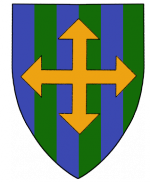 |
YwysOriginal article: Ywys
Long the traditional homeland of the Gaels on Aurea, Ywys was instrumental in stopping Imperial aggression in the north during the waning years of the Third Age of Man. Though certainly still clannish, Ywys is traditionally one of the more unified of the Gael lands, expecting the wisdom of their King (and sometimes High King) to guide them. Ywys is also the center of druidic tradition in Aurea, with their most holy site, the Grand Henge, located near the nation's royal seat. |
|
ZetaOriginal article: Zeta
Once the heart of the Great Empire, the Patrimony of Zeta is a land ravaged by the Fourth Succession War, laid to waste by the death-throws of the once mighty Empire. Even Zeth itself, once the largest city in the world, is now little more than a fishing village and collection of craftsmen who serve the Pontifex of Ptharos and the Triadic priests that have become the formal Regents of the Empire. Though technically they hold sovereignty in the region only until a new Emperor is able to unify the Empire, few still expect an Emperor will ever sit on the Dragon Throne again (or even if such an event is still desirable). |
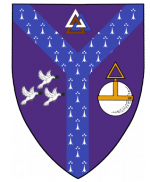 |
| This article is part of the Player's Guide to Aurea | |
|
Introduction · Economics and Trade · Legends and History · Religion · Regions and Realms | |
| Regions and Realms on Aurea | |